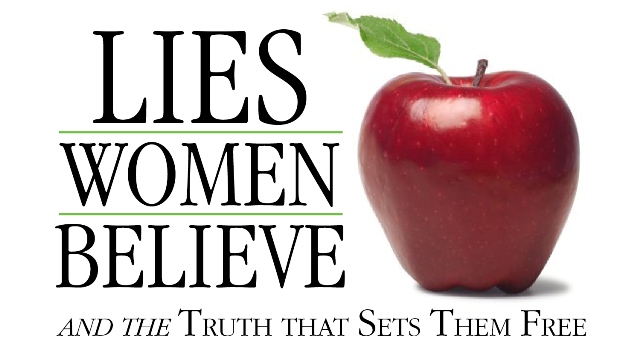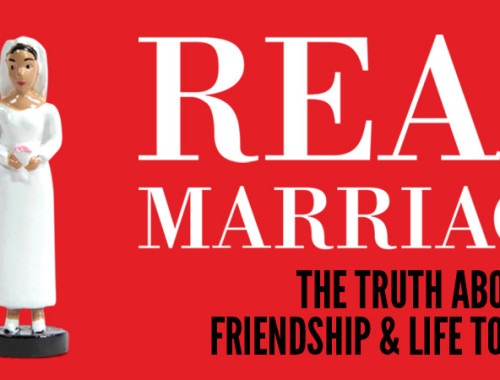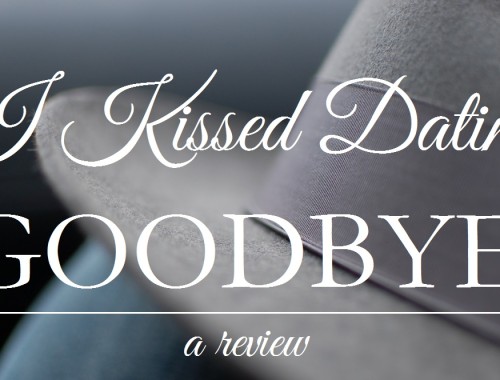I didn’t think it would be possible to be happy about writing another segment of my Lies Women Believe review, but it is 100x better than dealing with being hacked. I’m pretty sure we’re all good for now, and I am crossing my fingers that never happens again.
This week is Nancy’s chapter on emotions, and part of me just wants to refer you to the How to Win Over Depression review, because it covers a lot of the same ground. But, she throws in her own twists, so let’s tackle them.
The first problem is the gender segregation:
More than anything else, it is probably our female emotional makeup that sometime causes men to throw up their hands and say, “I give up. I just can’t figure you out!” And, in a sense, who can blame them? (194)
She’s been talking about the range of emotions women feel and how we’re shifting through emotional states constantly and how men don’t do that and those poor babies just look at how confused we make them. Two problems: men are not unfeeling robots, and this framing is sexist.
I looked at her list of emotions– confused, ecstatic, angry, frustrated, sad, confident, happy, lonely, and depressed– and thought back over this weekend with my partner. Over three days he was confused, ecstatic, angry, frustrated, confident, and happy (we did maintenance on our cars and watched Michigan crush Brigham Young 31 to nothing). One could argue that my emotional state over this weekend was actually milder and more stable than his (I wasn’t the one working on the cars, and while I know every word of “Victors Valiant,” I’m not a lifelong Michigan fan).
Second, because women are seen as being “more in tune with our emotions,” we’re required by society to do two things: provide emotional labor on demand, and be the “responsible” party in a relationship. Seen an ad recently that caters to just how lazy and incompetent men are at household tasks? It’s the same idea happening here: because men just don’t understand emotions they rely on women to carry the weight. Sure, it might paint men in a slightly negative light (I would argue in this case it doesn’t), but the end result is that women end up doing more of the work– relational or not.
I FEEL SOMETHING, IT MUST BE TRUE
Ok, on the surface, I agree with Nancy. Just because I feel someone might be lying to me doesn’t automatically mean that they are. However, this entire section is a problem because it reinforces one of the biggest problems I’ve had in my life: not trusting my gut.
I’ve read sections from The Gift of Fear, and the bits I’ve read were illuminating. De Becker argues that we should trust our intuition, that it’s telling us something important that our conscious mind may not be able to communicate to us fully. Looking back over the beginnings of my abusive relationship, there were several red flags that made me feel uncomfortable that I ignored because I totally agreed with Nancy: just because I felt something didn’t make it true.
Maybe not, but our feelings are almost definitely worth paying attention to, and are enough of a reason to further investigate an issue, or start a conversation. Our feelings are telling us something, and we can’t just skip on by them with this notion that feelings aren’t grounded in reality (195).
I CAN’T CONTROL MY EMOTIONS
This entire section gets one big NOPE from me. She opens up with a series of hypothetical situations, including this:
You may not be able to help feeling apprehensive about an upcoming medical exam, but that doesn’t mean you can’t stop worrying and fretting about the outcome. (197)
Uhm, no, no I can’t. That is the literal definition of anxiety. My anxiety is not usually severe enough to make me want to go through the process of figuring out which medication I need at what dosage, especially not in this strapped-for-competent-doctors area, but I have been diagnosed with anxiety. Sometimes, it gets really bad, like when I first figured out I had a wheat sensitivity. There were a few weeks when I couldn’t stop thinking that maybe I was allergic to everything now and I would never be able to eat again and I was going to literally starve. I knew those thoughts are the kind known as “intrusive” and that they weren’t real, weren’t based in reality, were contradicted by every shred of evidence, but it didn’t stop me from having a panic attack every time I tried to eat something for two weeks.
The next two pages are ripped-completely-out-of-context verses used as platitudes. God said you’ll never be alone so feeling lonely is a lie (198)! The Bible says “don’t worry!” so there’s no situation that could ever happen to anyone worthy of feeling anxious about it (199)!
Blah.
I CAN’T HELP HOW I RESPOND WHEN MY HORMONES ARE OUT OF WHACK
She means menstruation and “PMS.” Quick note about PMS: I can’t tell you the number of times my totally legitimate frustration has been written up to “PMS.” Donald Trump did it recently when he said a journalist had “blood coming out of her … wherever.” PMS- as it’s commonly understood in my culture– is largely an urban myth. It doesn’t mean PMS isn’t real, or that the shifts in our hormone balances have no possible effect on mood, but that “PMS” can be used as a weapon to de-legitimize the female experience. We don’t have a real reason to be upset, we’re just bleeding out our vajajays.
But is that where Nancy goes with this? Of course not. She confuses emotions and moods with impulse control (200). Granted, nuerotypical people can have mild impulse control problems, such as things that belong in the realm of bad habits. It’s common for people to chew our nails, pick at scabs, that sort of thing. But then there’s a whole ‘nother plane of impulse control disorders (like trichotillomania, the compulsion to pull out one’s hair. If you’re not familiar with impulse control disorders, this YouTube channel is an excellent place to start).
So while I don’t use my hormones (which with PCOS are even more “out of whack” than for many women) or my pain as an excuse or a means to justify something like me being irritable and snappish, I do have to have grace for myself. No, I shouldn’t bite Handsome’s head off. But that doesn’t mean I need to make myself feel like shit if I do.
THE ANSWER TO DEPRESSION MUST BE FIRST SOUGHT IN MEDICATION AND THERAPY
For most of this, see the How to Win Over Depression review because she just basically recycles everything LaHaye says. If you needed proof that LaHaye’s mode of thinking is endemic to evangelical culture, here it is.
Nancy does the same thing Tim does: she finds “reasons” for depression completely outside the realm of medical knowledge, like so:
What we do know is that in many cases, physiological symptoms connected with depression are the fruit of issues that are rooted in the realm of the soul and spirit– issues such as ingratitude, unresolved conflict, irresponsibility, guilt, bitterness, unforgiveness, unbelief, claiming of rights, anger, and self-centerdness. (205)
Right here she’s worse than Tim. Seriously– claiming of rights makes one depressed? I’m banging my head into a wall over this, because this is absolutely ridiculous! But it gets worse. A few paragraphs later she calls depression a “temper tantrum.”
Arg gablarg.
The last thing that frustrated me about this section is here:
In the last several decades, we have developed a mind-set that only “professionals” are qualified to help people who are plagued with various emotional or mental disorders. Even many pastors have been made to feel incompetent to deal with these issues and therefore routinely refer to troubled counselees to “the experts.” (210)
Nancy has just amply proven exactly why this “mind-set” is necessary. She just called depression a temper tantrum and talked about impulse control for two pages without ever once addressing the reality of things like trich. She thinks it’s possible for people like me to just “place our hope in God” to stop a panic attack in its tracks. And, hearkening back to her chapter on marriage, she thinks that battered women need to “revere” their husbands (read: not divorce them) or risk losing any chance of being “protected by God” (which gah you’d think if God was in the protecting-battered-women business they’d oh I dunno protect battered women).
For the rest of this, I high recommend these pieces:
“Denying the Body of Christ Puts Abuse Survivors at Risk” by RL Stollar
“Ministering to Adult Sexual Offenders” (pdf) by Victor Veith, Director Emeritus of the National Child Protection Training Center
Aside: I’ve started a food blog, focusing on oral-allergy-syndrome-friendly recipes, called Cussing Culinaire. I’m having a lot of fun with it.




